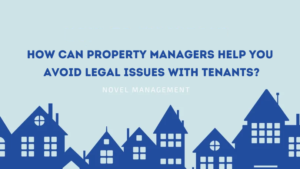When renting a property in Miami, landlords often require tenants to pay a security deposit upfront. This deposit serves as protection for landlords against any damages or unpaid rent that may occur during the tenancy. However, there are laws and regulations in place to protect both landlords and tenants when it comes to handling security deposits.
In this guide, we will discuss everything you need to know about handling security deposits properly in Miami rentals. We will cover the rules and guidelines set by the state of Florida, as well as best practices for landlords and tenants. Whether you are a landlord looking to protect your investment or a tenant wanting to understand your rights, this guide will provide valuable information for both parties. So let’s dive in and learn more about security deposits in Miami rentals.
What is a Security Deposit?
A security deposit is a sum of money paid by the tenant to the landlord at the beginning of a lease agreement. This amount serves as protection for landlords in case of any damages or unpaid rent during the tenancy period. In Miami, the security deposit is typically equivalent to one month’s rent, but can be higher depending on the landlord’s discretion.
The purpose of a security deposit is to ensure that landlords are compensated for any costs related to damages or unpaid rent caused by the tenant. It also encourages tenants to take care of the property and fulfill their obligations under the lease agreement.
In Florida, there are laws in place that govern how landlords and tenants should handle security deposits. These laws outline proper procedures for collecting, holding, and returning security deposits. Both parties must comply with these laws to avoid legal disputes and potential penalties.

Rules and Guidelines for Landlords
As a landlord, it is important to understand and follow the rules and guidelines set by the state of Florida when handling security deposits. These rules are put in place to ensure fair dealing between landlords and tenants.
Firstly, landlords must provide tenants with a written notice stating the terms and conditions for collecting, holding, and returning the security deposit. This notice should be given within 30 days after receiving the deposit.
Secondly, landlords must keep the security deposit in an escrow account or post a surety bond with the county clerk’s office. The purpose of this is to ensure that the deposit is readily available to be returned to the tenant at the end of their lease. Additionally, landlords must provide tenants with a receipt for the security deposit.
Furthermore, landlords are required to conduct a thorough inspection of the property before and after the tenancy period. This helps determine any damages caused by the tenant and allows for proper deductions from the security deposit.
Best Practices for Tenants
As a tenant, it is important to understand your rights when it comes to handling security deposits. One of the most crucial steps you can take is thoroughly reading and understanding your lease agreement before signing it. This will outline the terms and conditions for your security deposit, including the amount and any deductions that may be made.
Tenants should also ensure they receive a written notice from their landlord within 30 days of paying the security deposit. This notice should include information on how to request the return of the deposit at the end of their tenancy.
During your tenancy, it is important to take care of the property and fulfill your obligations under the lease agreement. This includes reporting any damages or maintenance issues promptly to your landlord.

Can Security Deposits be Withheld?
In Miami, landlords are allowed to withhold a portion or the full amount of the security deposit for valid reasons. This may include unpaid rent, damages beyond normal wear and tear, or cleaning fees.
However, tenants have the right to dispute any deductions made from their security deposit. If you believe that the deduction is unjustified, you can request an itemized written statement from your landlord explaining the deductions made.
If an agreement cannot be reached between the landlord and tenant, either party can seek legal action through small claims court. Therefore, it is important for both parties to maintain proper documentation and follow the rules and guidelines set by Florida’s laws.
How to Get Your Security Deposit Back
At the end of your tenancy, you have the right to request the return of your security deposit within 15 days after vacating the property. In order to receive your full deposit back, it is important to fulfill all obligations under the lease agreement, including paying rent and leaving the property in good condition.
To ensure a smooth return of your deposit, it is recommended to conduct a walk-through inspection with your landlord before moving out. This allows any issues or damages to be addressed and potentially fixed before deductions are made.
If there are no disputes or deductions needed, your landlord must return the full amount of your security deposit within 15 days. If there are any deductions made, you should receive an itemized written statement explaining the reasons and amounts deducted.
Also, keep in mind that if you do not request the return of your security deposit within 15 days after vacating the property, your landlord may have the right to withhold the entire amount. Therefore, it is important to communicate with your landlord and follow proper procedures to ensure a timely and fair return of your security deposit.

Mistkakes to Avoid
As a tenant, it is important to avoid any mistakes that may lead to disputes or issues with your security deposit. Here are some common mistakes to avoid:
- Not thoroughly reading and understanding your lease agreement: This can lead to unexpected deductions or disputes with your landlord. Additionally, not following the terms and conditions outlined in your lease can result in forfeiting your security deposit.
- Not properly documenting the condition of the property: It is important to document any damages or maintenance issues before moving in and after moving out. This can help prove that any damages were present before you moved in and avoid being wrongfully charged for repairs.
- Not fulfilling obligations under the lease agreement: Failure to pay rent or causing excessive damage to the property can lead to deductions from your security deposit. Make sure to fulfill all obligations outlined in your lease agreement to avoid any issues.
- Not requesting the return of your security deposit in a timely manner: As mentioned earlier, failure to request the return of your security deposit within 15 days after vacating the property may result in forfeiting the entire amount. Be sure to communicate with your landlord and follow proper procedures for a smooth return of your deposit.
By avoiding these common mistakes, tenants can protect their rights and ensure a fair handling of their security deposit. It is important for both landlords and tenants to understand and comply with the rules and guidelines set by florida security deposit laws to maintain a positive landlord-tenant relationship.
Does Florida Have Any Additional Laws for Security Deposits?
Yes, Florida has additional laws that protect both landlords and tenants when it comes to security deposits. For example, landlords are required to hold the security deposit in a separate non-interest-bearing account and cannot use it for any other purposes.
Additionally, if there is a change in ownership of the property, the new landlord must notify the tenant within 30 days and provide information on where the security deposit is being held.
Tenants also have the right to request a written copy of Florida’s landlord-tenant laws regarding security deposits from their landlord.
It is important for tenants to understand their rights and the laws surrounding security deposits in order to protect themselves from any unfair or unlawful practices. If you believe that your landlord has violated Florida’s laws regarding security deposits, you may seek legal action through small claims court.
Tips for Tenants
As a tenant, it is important to understand your rights and responsibilities when it comes to security deposits. Here are some tips to keep in mind:
- Thoroughly read and understand your lease agreement: Make sure you understand all terms and conditions outlined in the lease agreement before signing.
- Document any damages or issues with the property: Take photos or videos of any existing damages before moving in and report any new damages or maintenance issues promptly to your landlord.
- Conduct a walk-through inspection with your landlord before moving out: This allows for any issues to be addressed and potentially fixed before deductions are made from your security deposit.
- Communicate with your landlord: If you have any questions or concerns regarding your security deposit, be sure to communicate with your landlord in a timely manner. This can help avoid misunderstandings and disputes.
- Follow proper procedures for requesting the return of your security deposit: Be sure to follow the guidelines set by state’s security deposit laws when it comes to requesting the return of your security deposit within 15 days after vacating the property.
By following these tips, tenants can protect their rights and ensure a fair handling of their security deposits. It is important for both landlords and tenants to maintain open communication and understand their obligations in order to have a positive and smooth rental experience.
FAQs
What do Florida’s security deposit laws require from landlords?
Florida’s security deposit laws require landlords to provide written notice to tenants within 30 days of receiving the security deposit. This notice must specify how the tenant’s deposit will be held (in an interest-bearing account, non-interest-bearing account, or posted bond). Landlords must also comply with other state regulations regarding the return and use of the deposit.
How should a rental property owner determine the security deposit amount?
A rental property owner should determine the security deposit amount based on factors such as the monthly rent, the condition of the rental property, and any additional risks associated with the tenant. Florida law does not specify a maximum security deposit amount, but it should be reasonable and clearly stated in the rental agreement.
What are common reasons for security deposit disputes under Florida’s security deposit laws?
Common reasons for security deposit disputes under Florida’s security deposit laws include disagreements over cleaning costs, property damage, and unpaid rent. To minimize disputes, landlords should provide a detailed move-in checklist, conduct a thorough inspection at move-out, and provide an itemized list of deductions from the tenant’s security deposit.
How can property management companies help with handling tenant’s deposits in compliance with Florida law?
Property management companies can help with handling tenant’s deposits by ensuring compliance with Florida’s security deposit laws, including providing the required written notice and keeping accurate records. They can also assist in resolving security deposit disputes by documenting the condition of the rental property and managing the return process.
What steps should landlords take to properly return a tenant’s security deposit according to Florida law?
To properly return a tenant’s security deposit according to Florida law, landlords must return the deposit within 15 days of the tenant vacating the rental property if there are no deductions. If deductions are made for cleaning costs or damages, landlords must provide an itemized list of charges within 30 days. Tenants then have 15 days to dispute any charges.
Conlusion
In conclusion, security deposits are an important aspect of renting a property and it is crucial for both landlords and tenants to understand the laws and guidelines set by Florida. Tenants should thoroughly read and understand their lease agreements, document any damages or issues with the property, conduct a walk-through inspection before moving out, communicate with their landlord, and follow proper procedures for requesting the return of their security deposit.
By avoiding common mistakes and following these tips, tenants can protect their rights and ensure a fair handling of their security deposit. Landlords should also comply with Florida’s laws regarding security deposits to maintain a positive landlord-tenant relationship and avoid any legal repercussions.
Novel Management is committed to providing a transparent and fair process for handling security deposits. We value the trust of both our landlords and tenants and strive to maintain open communication throughout the rental process. For any further questions or concerns regarding security deposits, please do not hesitate to contact us. Thank you for choosing Novel Management!




